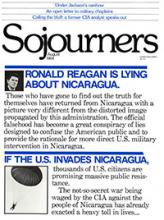In a rare moment of insight, one of the million-dollar television pundits recently said, "When the history of the 1984 presidential campaign is written, the name that will be remembered is that of Rev. Jesse Jackson." What the pundit undoubtedly had in mind was that Jackson would be remembered as the first black presidential candidate to be taken seriously by the white establishment. That fact alone is probably enough to get Jackson into the history books. And as the Jackie Robinson of presidential politics, Jackson has also rightly become a source of renewed pride and hope for millions of black Americans who haven't seen much to be hopeful about for a long time.
If all Jesse Jackson accomplished this year was to bring black America's demand for equality into the political mainstream, at least for a while, then his campaign would still count as a historic effort. But from the very beginning Jackson has insisted that his was not only a black campaign. Instead Jackson sought to call together a rainbow coalition around basic demands for social and economic justice and a new vision of America's role in the world.
The building of a nationwide rainbow coalition was a pretty ambitious project for a campaign with little money, an inexperienced staff, and a late start. While the Jackson campaign occasionally made significant breakthroughs among Hispanic voters, especially in New York, and consistently scored a small but measurable percentage of the white vote, for the most part the multiracial "coalition of the locked-out" failed to materialize.
Read the Full Article

